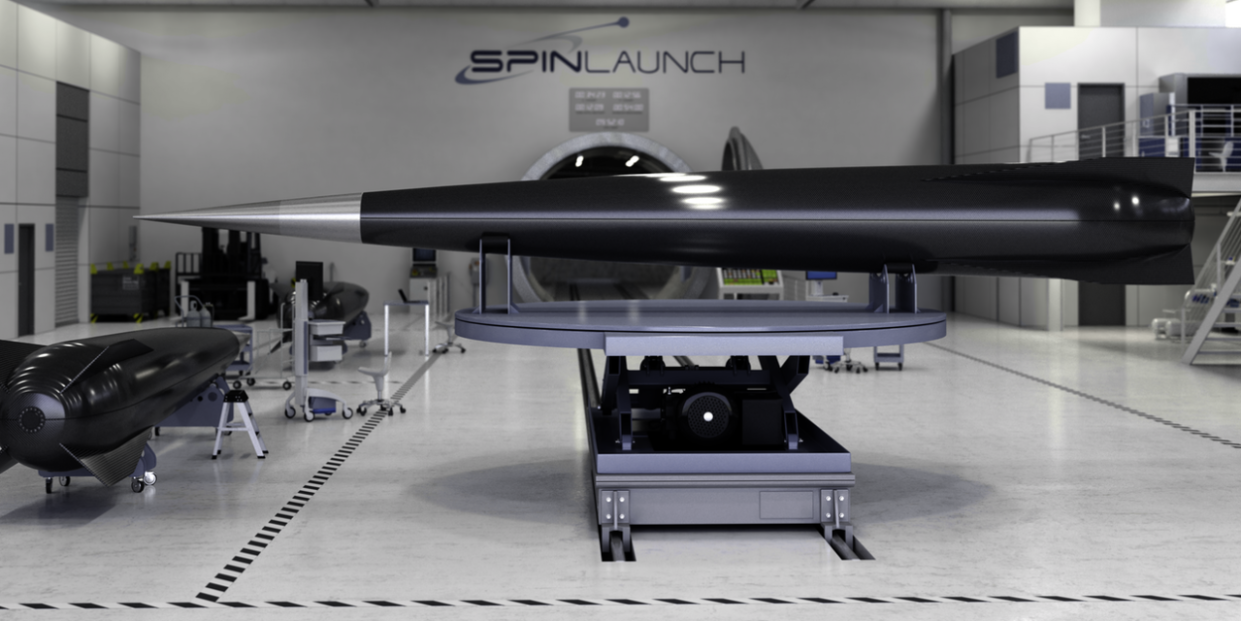Startup Wants to Disrupt Rockets With Catapults

If we every want to build monster machines in space, cheaper and more sustainable ways to get raw materials into orbit is of ever increasing importance. SpaceX recently made history with with heavy boosters returning after the initial launch of the Falcon Heavy, but a new challenger has a potentially cheaper alternative: catapult.
SpinLaunch, founded in secrecy in 2014, is now making itself known in an interview with TechCrunch. Founded by Jonathan Yancey, who sold a solar-powered drone startup to Google (which Alphabet killed off last year), SpinLaunch is now showing off its ideas in the hopes of finding big investors.
The company wants to build centrifuges that would spin at high speed inside a vacuum for minimal friction. According to TechCrunch, the momentum from the centrifuge would then be transferred into a catapult that would send the payload hurtling through the sky at a speed of around 3,000 MPH. This could provide either all or some of the power needed to launch a payload into space.
All this would be in service of replacing rocket boosters, which power the first stage of multistage launch vehicles, and are some of the most expensive parts of rocketry. Even reusable boosters like those powering the SpaceX Falcon 9 require fuel and continual maintenance.
“SpinLaunch employs a rotational acceleration method, harnessing angular momentum to gradually accelerate the vehicle to hypersonic speeds," Yancey tells TechCrunch. "This approach employs a dramatically lower cost architecture with much lower power." Yancey says that a SpinLaunch could reduce the price of a space launch to under $500,000.
Of course, one thing about rocket boosters is that they're proven. There are questions of breaking through the density of the Earth's atmosphere on momentum alone as well as how electronics or other fragile cargo could withstand such an aggressive toss. Yancey says that over the last three years "the core technology has been developed, prototyped, tested and most of the tech risk retired," and the only things left to do are build "all very large hardware development and construction projects face.”
As the space economy makes headlines, companies seeking to undercut the costs of major players within the industry are becoming increasingly visible. Bigelow Aerospace, a company selling inflatable space habitats, is looking to help smaller countries kickstart their space programs.
Only time will tell if SpinLaunch will get the chance to give its tech a try.
Source: TechCrunch
You Might Also Like

